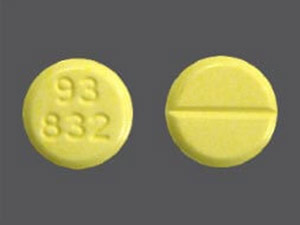Showing all 3 results
What is Clonazepam?
- Clonazepam is a prescription drug available under the brand name Klonopin. It comes as an oral tablet and an oral disintegrating (dissolving) tablet and is a controlled substance.
- Clonazepam helps treat panic disorders and stop seizure (or convulsions). It is beneficial as a part of combination therapy, and a person taking it may need to take other medications.
- Clonazepam belongs to the benzodiazepine category of drugs that increase GABA (gamma-aminobutyric acid) activity.
Important Information
- Clonazepam can slow down or stop your breathing, especially if you have been using opioid medication, other drugs, or alcohol that can slow your breathing. Misuse of medicines like Clonazepam can cause overdose, addiction, or death. Never share Clonazepam with someone else.
- Some people have suicidal thoughts while taking drugs for seizures. Your doctor should check your medical progress regularly. Your attendant or any family member should also be alert to your mood changes.
- Using Clonazepam during pregnancy can make your baby drug-dependent. In addition, it can cause life-threatening withdrawal symptoms in the baby after its birth. It is unsafe to breastfeed while taking Clonazepam. Talk to your doctor about the risks.
What to know before taking Clonazepam?
To ensure that Clonazepam is safe for you, tell the medical healthcare provider if you have ever had:
- Breathing problems;
- Liver or kidney disease;
- Mood problems, depression, suicidal thoughts or behavior; or
- Porphyria (a genetic enzyme condition that causes signs affecting the skin or nervous system).
Do not initiate or stop taking seizure drugs during pregnancy without consulting your doctor. A seizure during pregnancy is harmful to both mother and baby. Do not give Clonazepam to a child without medical consultation. Clonazepam is not under the recommendation to treat panic disorder in children younger than 18 years old.
How to take Clonazepam?
Your Clonazepam dosage will depend upon several factors:
- The severity and type of the condition the person is using Clonazepam to treat
- Age of the person
- The form of Clonazepam they take
- Other medical conditions they have
Typically, the doctor will start you with a lower dosage and adjust it over time to reach the proper dosage. Ultimately, your doctor will recommend the smallest dosage to provide the desired effect.
Clonazepam dosage
Clonazepam is available in oral form with strengths of 0.5 mg, 1 mg, and 2 mg. The oral disintegrating (dissolving) tablet form of this drug is available in the strengths of 0.125 mg, 0.5 mg, 0.25 mg, 1 mg, and 2 mg. Usual adult dosage (ages 18 to 64 years) for panic disorder:
- Typical initial dose- 0.25 mg orally two times a day
- Dose increment- your doctor may increase your dose to 0.5 mg twice a day after three days.
- Maximum amount- 4 mg per day
- Quantity reduction- your doctor will reduce your dose gradually when stopping treatment with this drug. The decrease in amount should not be more than 0.125 mg every three days.
Clonazepam for panic disorder is not under the recommendation for use by anyone younger than 18 years old and more than 65 years old. Adult dosage (ages 18 to 64 years) for seizures:
- Typical initial dose- 0.5 mg three times a day
- Dose increment- your doctor may increase your dosage by 0.5 mg to 1 mg every three days until your seizure does not control
- Maximum amount- 20 mg per day in divided doses
Child dosage (ages 11 to 17 years) for seizures:
- Typical initial dose- 0.5 mg three times per day
- Dose increment- your doctor may increase your dosage by 0.5 mg to 1 mg every three days until your seizure does not control
- Maximum amount- 20 mg per day in divided doses
Usual pediatric dose for seizure prophylaxis for children up to 30 kg of body weight or ten years of age:
- 0.01 mg per kg per day orally in two to three divided doses. Maximum amount- 0.1 to 0.2 mg per kg daily
Overdose
If an overdose on Clonazepam, take emergency medical help or call the Poison helpline at 1-800-222-1222. Overdose symptoms to Clonazepam may include confusion, extreme drowsiness, muscle weakness, or coma.
What to avoid while using Clonazepam?
- Avoiding consumption of alcohol can cause dangerous side effects, or death may occur.
- Avoid driving any vehicle or performing any hazardous activity until you know how this medicine will affect you. Drowsiness or dizziness may cause accidental falls or severe injuries.
Clonazepam side effects
Clonazepam may cause mild or severe side effects. Common side effects of Clonazepam oral tablet can include:
- Drowsiness
- Dizziness
- Fatigue
- Depression
- Memory problems
- Problems with walking, balance, and coordination
If the common side effects go away within a few weeks, you do not need to worry. Otherwise, it would help if you talked to any of your medical healthcare providers. You should call your medical healthcare provider immediately if you have severe side effects. You should contact 911 if you feel like you have life-threatening symptoms or have a medical emergency. Severe side effects of Clonazepam may include:
- Depressed mood or suicidal thoughts (harming yourself)
- Seizures (are more likely to happen if a person stops taking this drug too quickly or if you already have a seizure disorder)
What drugs can interact with Clonazepam?
Clonazepam can interact with various drugs causing different effects. Following is the list of medicines that usually interact with Clonazepam and may cause severe side effects:
- Benzodiazepines such as clonazepam, lorazepam, midazolam, and triazolam. Interaction with any of these benzodiazepines may make you feel sedated or drowsy.
- Opioids such as hydrocodone and codeine
- Barbiturate and non-barbiturate sleep drugs, such as butabarbital, amobarbital, pentobarbital, eszopiclone, zolpidem, and zaleplon.
- Other drugs that help treat anxiety such as buspirone and hydroxyzine.
- Tricyclic antidepressants, such as nortriptyline and amitriptyline
- Other drugs for seizure treatment, such as pregabalin and gabapentin



